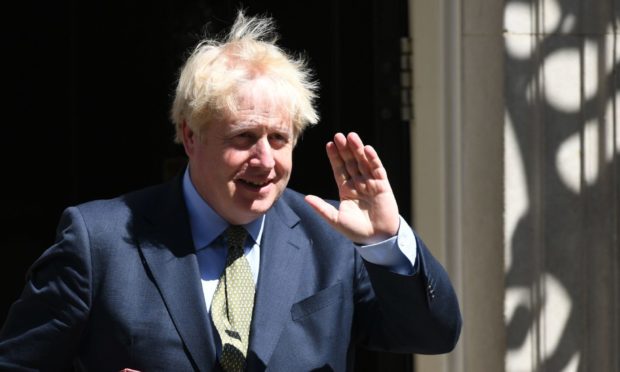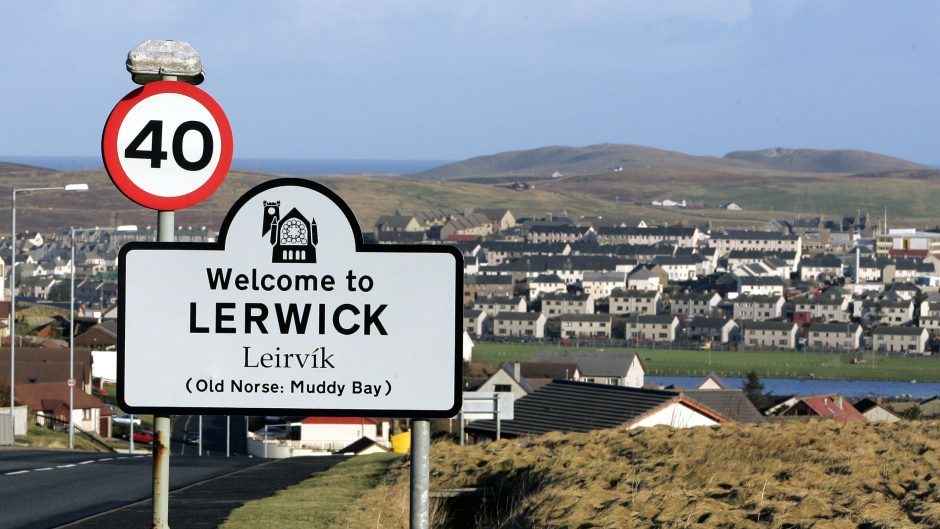Boris Johnson will mark his first year in Downing Street with a visit to northern Scotland tomorrow, amid surging support for independence and claims cabinet ministers are in “panic mode” about the fate of the Union.
The prime minister will use the trip to reaffirm his “unwavering commitment” to Scotland and announce the long-awaited islands growth deal for Orkney, Shetland and the Western Isles.
The joint UK-Scottish Government deal will see the islands receive a £100 million cash boost, taking total investment in Scottish growth deals to more than £3.2 billion.
Local leaders welcomed the proposal, saying it has the potential to “transform the islands”.
Ahead of visit, Mr Johnson said: “When I stood on the steps of Downing Street one year ago, I pledged to be a prime minister for every corner of the United Kingdom.
“Whether you are from East Kilbride or Dumfries, Motherwell or Paisley, I promised to level up across Britain and close the opportunity gap.
“The last six months have shown exactly why the historic and heartfelt bond that ties the four nations of our country together is so important and the sheer might of our union has been proven once again.”
He added: “In Scotland, the UK’s magnificent armed forces have been on the ground doing vital work to support the NHS, from setting up and running mobile testing sites to airlifting critically ill patients to hospitals from some of Scotland’s most remote communities.
“And the UK Treasury stepped in to save the jobs of a third of Scotland’s entire workforce and kept the wolves at bay for tens of thousands of Scottish businesses.
“More than ever, this shows what we can achieve when we stand together, as one United Kingdom.”
During the visit, Mr Johnson will meet local businesses and members of the armed forces to thank them for their ongoing work in the coronavirus response.
The last six months have shown exactly why the historic and heartfelt bond that ties the four nations of our country together is so important and the sheer might of our union has been proven once again.”
Boris Johnson
The prime minister, who dubbed himself “minister for the union” last summer, will not be meeting Nicola Sturgeon, however.
His spokesman said no meeting was scheduled, but the first minister said she would be “happy to meet, if he wants to do so”.
She added: “I would ask anybody coming to Scotland, the prime minister included, to make sure they follow all of the FACTs advice while they are here.”
Ms Sturgeon’s Westminster leader, Ian Blackford, welcomed the prime minister’s visit – saying it would boost support for independence.
He told the Commons during PMQs: “On Tuesday the Tory Party held a political cabinet with the prime minister in a panic about the majority in increasing support for Scottish independence.
“Apparently their great strategy amounts to more UK Cabinet ministers coming to Scotland.
“Can I tell the prime minister – the more Scotland sees of this UK Government, the more convinced they are the need for Scotland’s independence.”
At the Number 10 briefing on Tuesday Mr Johnson was told the demographics of Scots who are now almost certain to back independence, those who are immovably in favour of the Union and, crucially, the demographics of undecided and swing voters.
Middle-class Remain voters are seen as the most likely to switch from No to Yes in any referendum.
Can I tell the prime minister – the more Scotland sees of this UK Government, the more convinced they are the need for Scotland’s independence.”
Ian Blackford
Analysis by Professor Sir John Curtice of recent polling in the public domain has found that, on average, support for independence among Scottish Remain voters is at 59% while 36% of Leave voters say they would vote Yes.
In response, Mr Johnson has instructed ministers to head to Scotland more frequently and has established a Cabinet sub-committee headed by Aberdeen-born Cabinet Office Minister Michael Gove and Chancellor Rishi Sunak with the task of drawing up policies to boost the UK.
There are also moves to better promote the work of the Treasury throughout the pandemic, which has protected more than 900,000 jobs through the furlough scheme and granted thousands of businesses loans.

